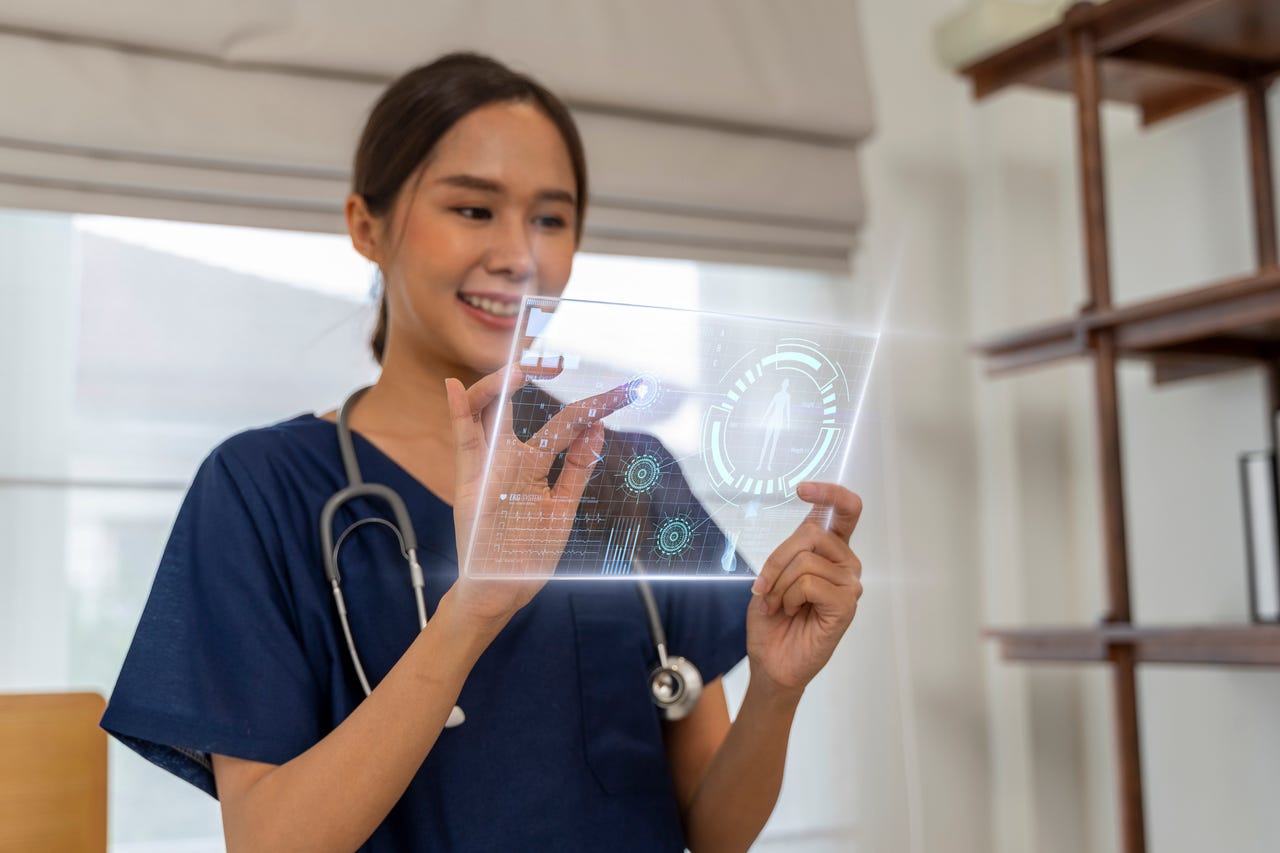AI can conduct breast cancer screenings in less time than humans but just as well, study finds


Breast cancer is a significant health issue in the US, with approximately 240,000 women being diagnosed with breast cancer every year, according to the Centers for Disease Control and Prevention (CDC).
As a result, women are encouraged to do yearly breast screenings or mammograms to detect breast cancer early when treatment is the most effective. Now, AI can help with those screenings.
Also: Amazon Clinic expands telemedicine services nationwide
A trial published in The Lancet Oncology journal performed a randomized trial with 80,000 women between the ages of 40 through 80, with a median age of 54, to compare the efficacy of AI in reading mamograms compared to standard readings by radiologists.
To conduct the trial, the women who opted to participate in the study across the four screening sites in Sweden were randomly assigned to AI-supported screenings or standard double readings without AI on a 1:1 ratio, meaning half were screened by AI and the other half by radiologists.
The results of the study were promising.
The AI-supported screenings detected 244 screen-detected cancers, comparable to the 203 screen-detected cancers identified by the standard screenings. The cancer detection rates were 6.1 per 1000 participants from AI groups and 5.1 per 1000 in the control group.
Also: The best blood pressure watches
The false positive rates were 1.5% in both groups, meaning they incorrectly identified a screening as cancerous at the same rate.
Both the AI screenings and the radiologist screenings produced very comparable results, which is especially impressive because of the massive potential work reduction the technology could have on radiologists.
The trial found that radiologists' screen-reading workload was reduced by 44.3% through the implementation of AI.
"AI-supported mammography screening resulted in a similar cancer detection rate compared with standard double reading, with a substantially lower screen-reading workload, indicating that the use of AI in mammography screening is safe," the study concluded.
The implementation of AI technology in the medical field could help radiologists allocate their time to other responsibilities, such as face-to-face patient interactions, that could better impact patient experience.